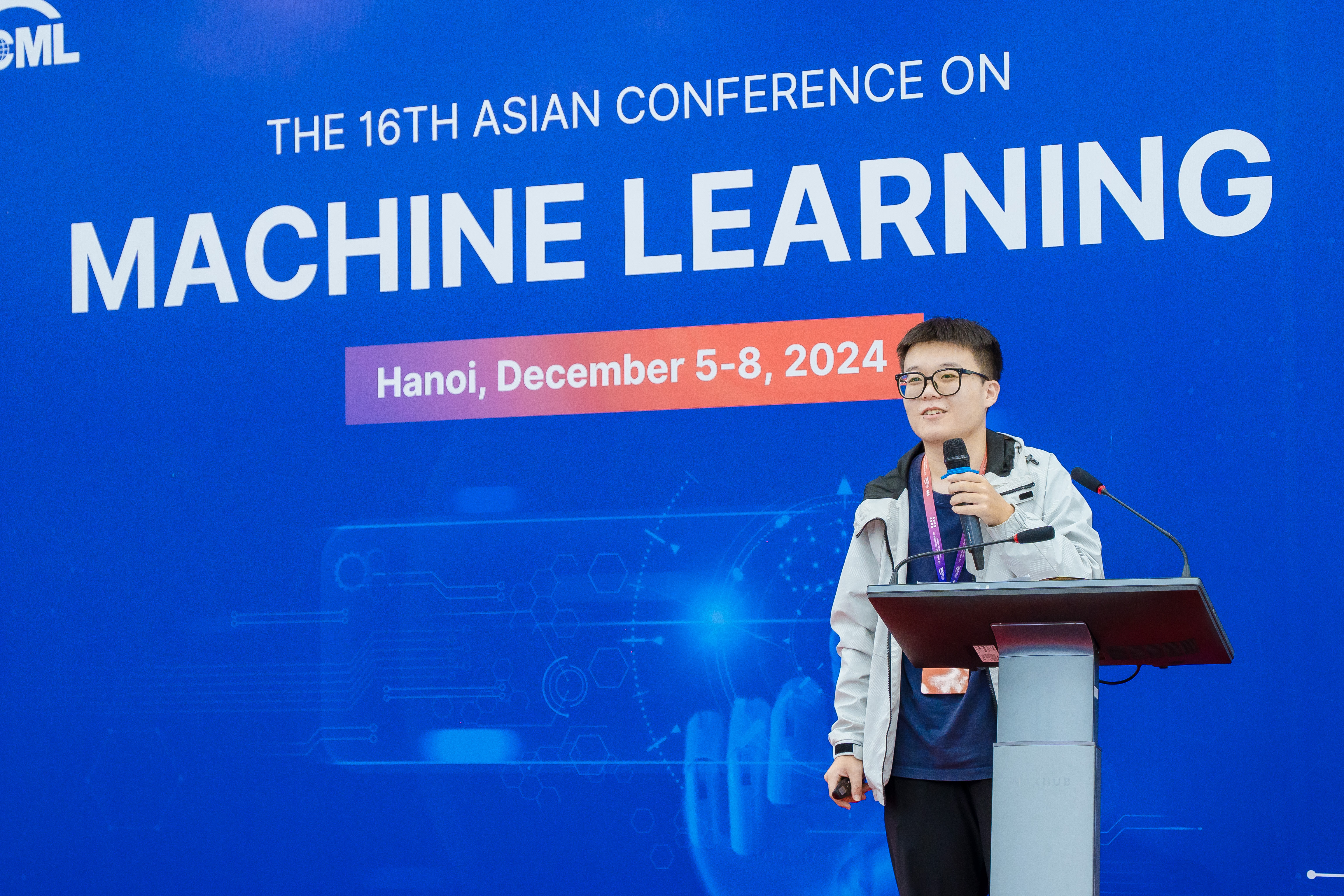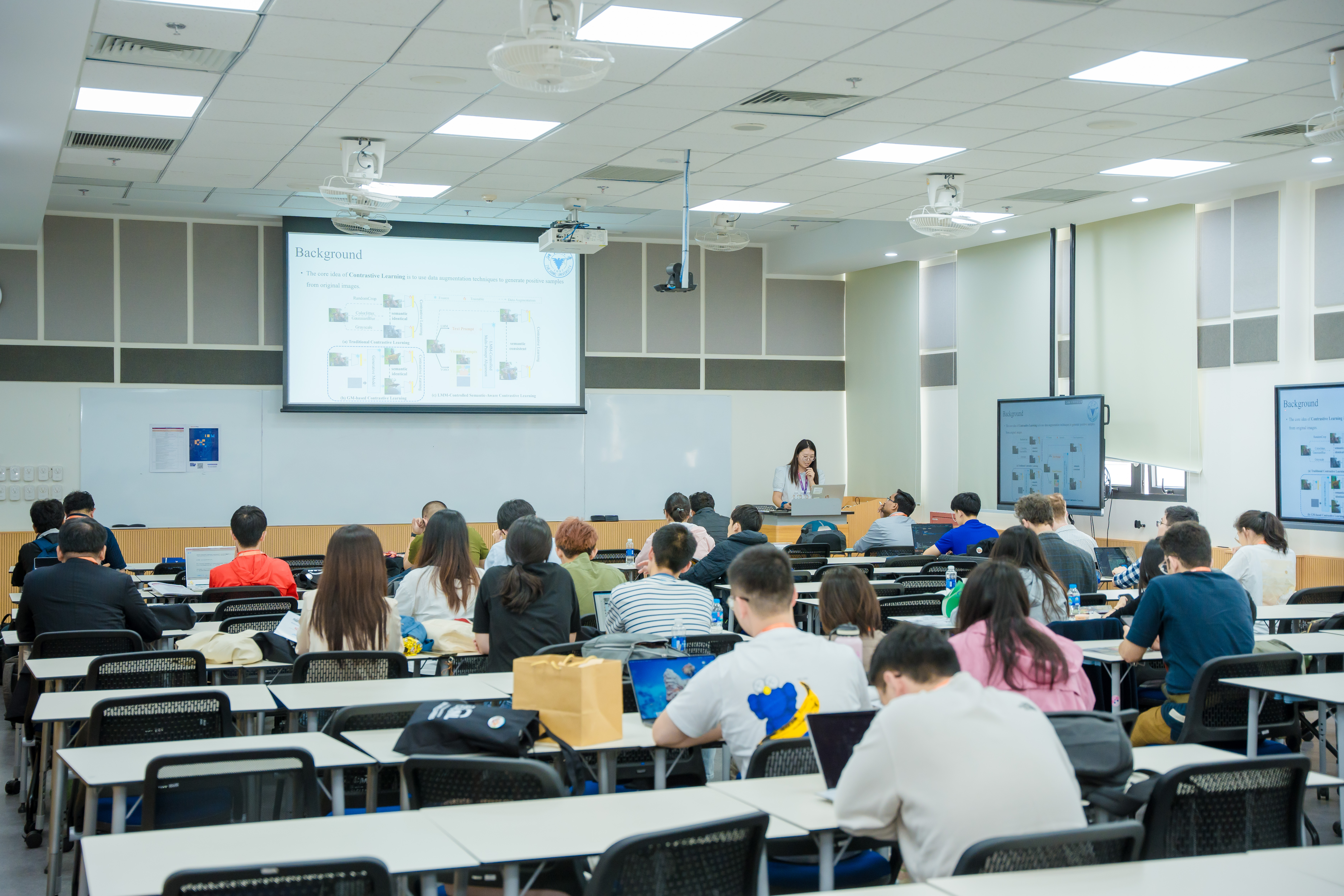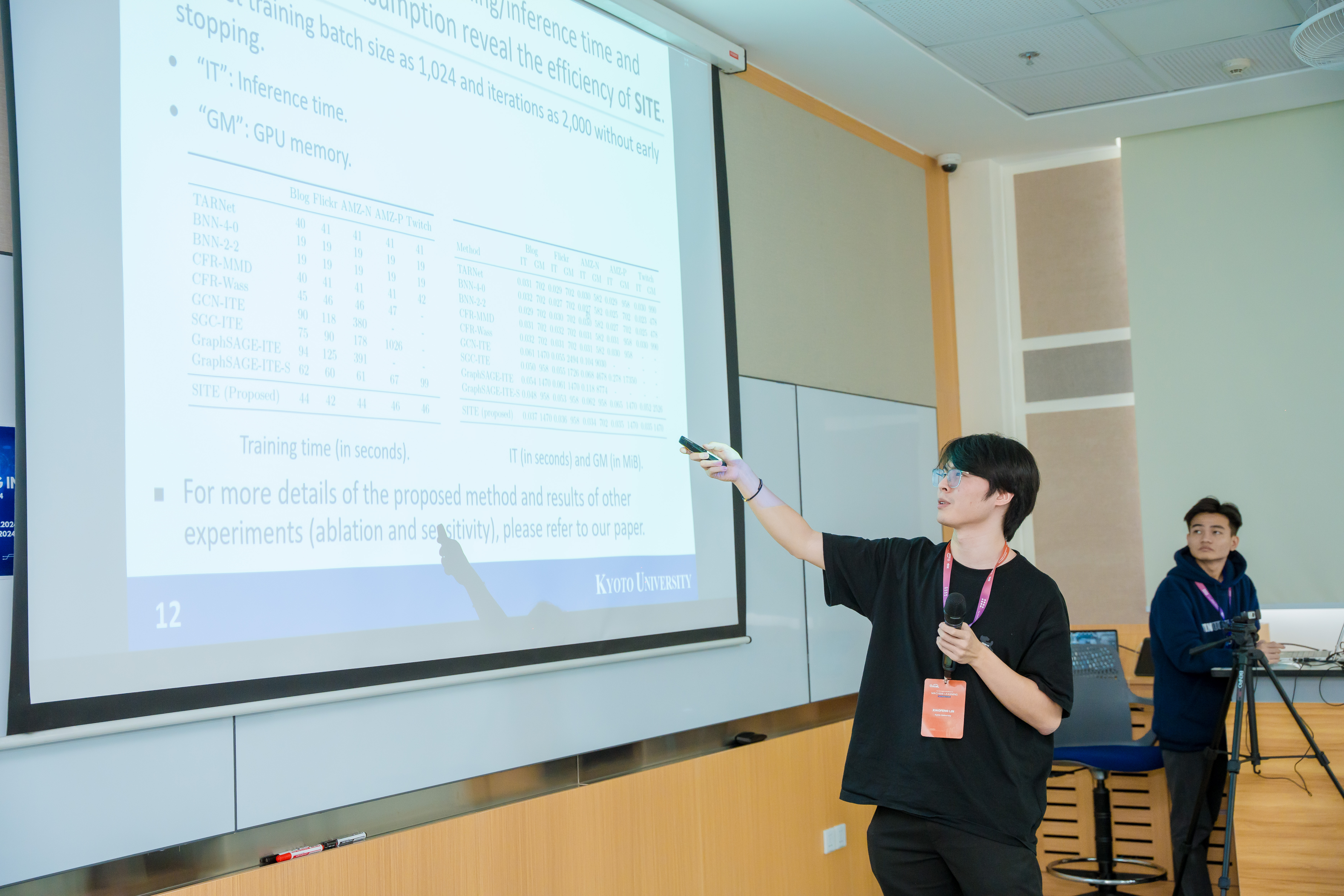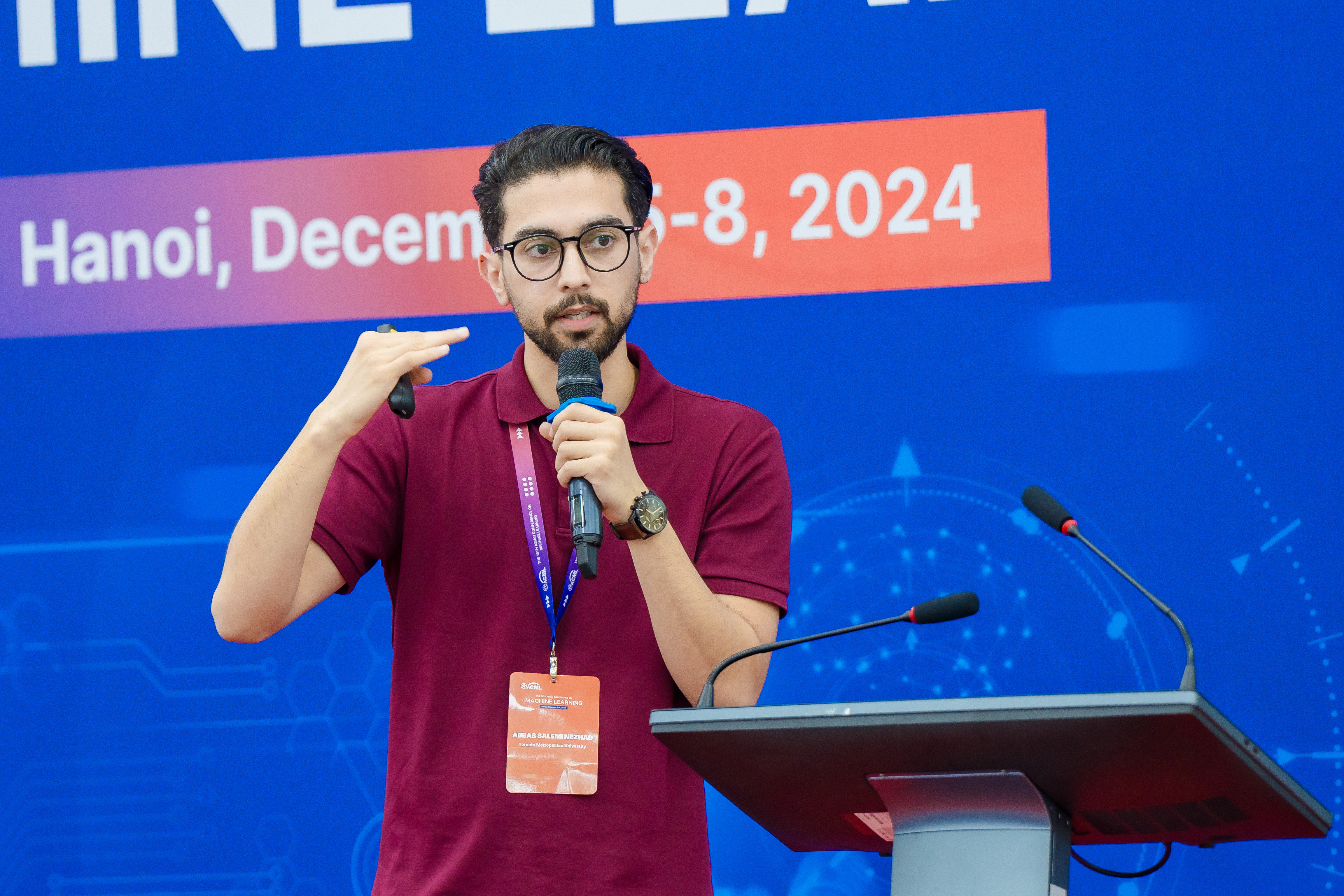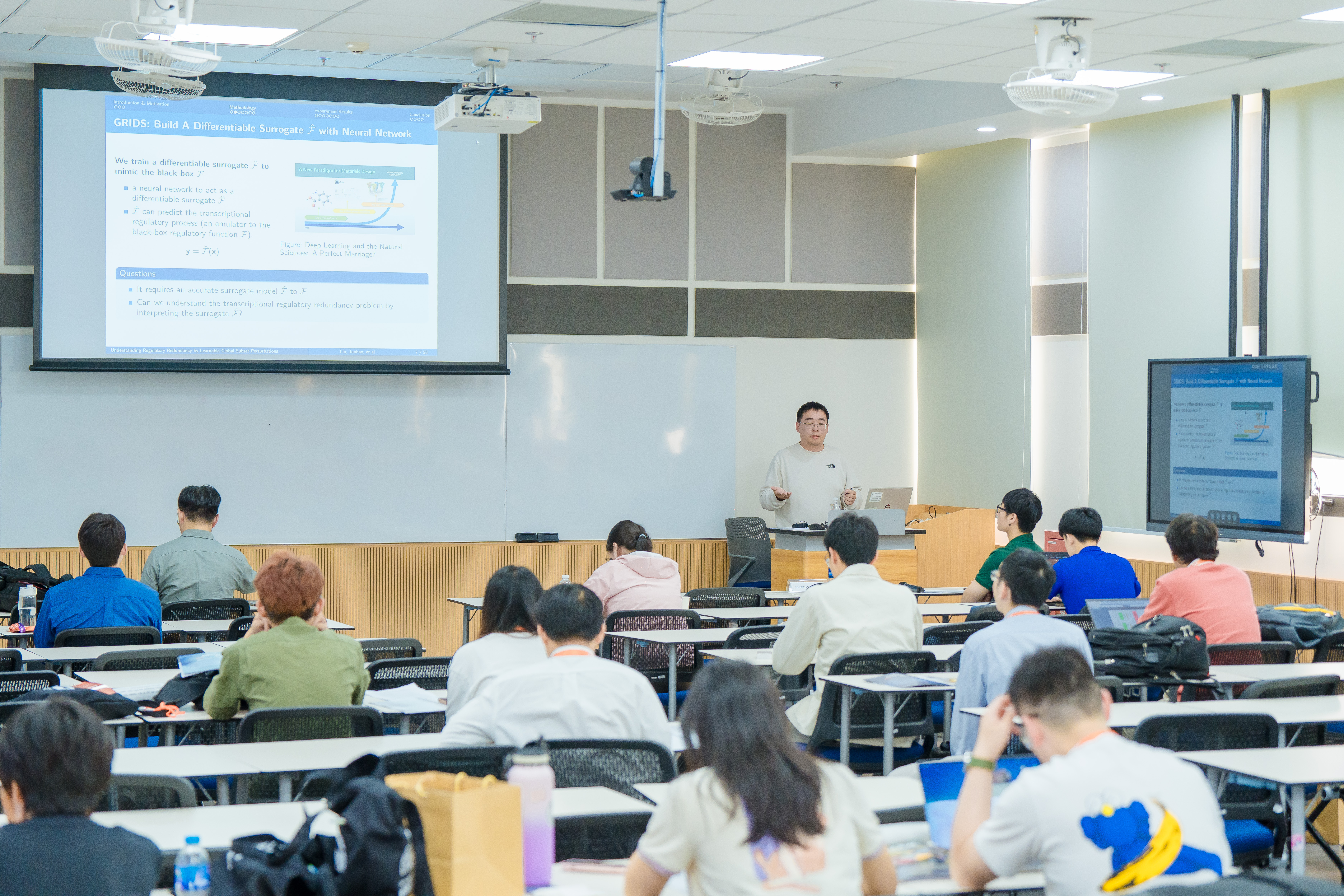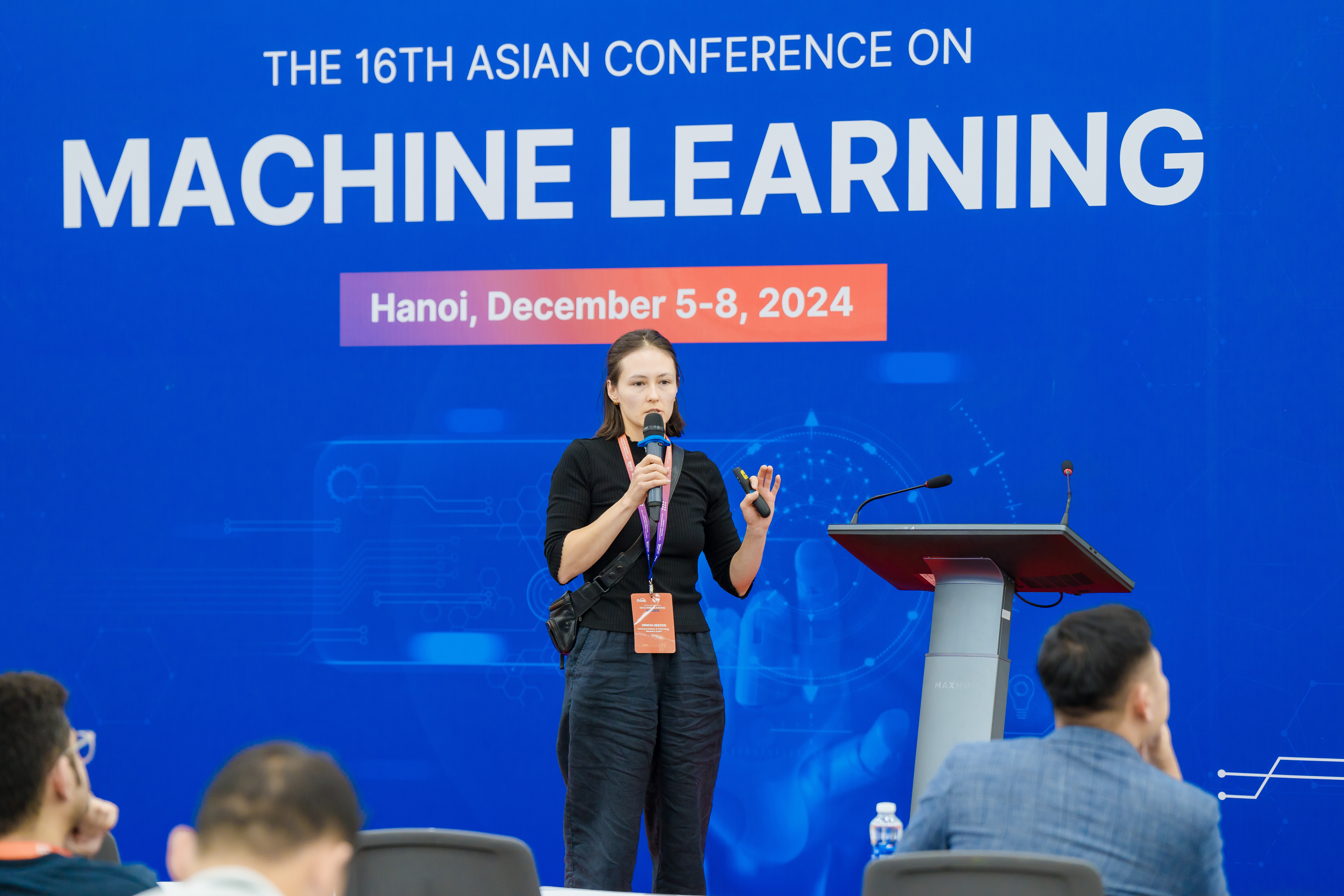RECAP
DAY 1 RECAP
Day 1 of ACML 2024 has wrapped up with incredible energy and insights with the attendance of about 150 people! 🙌
📣 The first day was packed with knowledge sharing and innovation, from inspiring keynote sessions to engaging poster presentations.
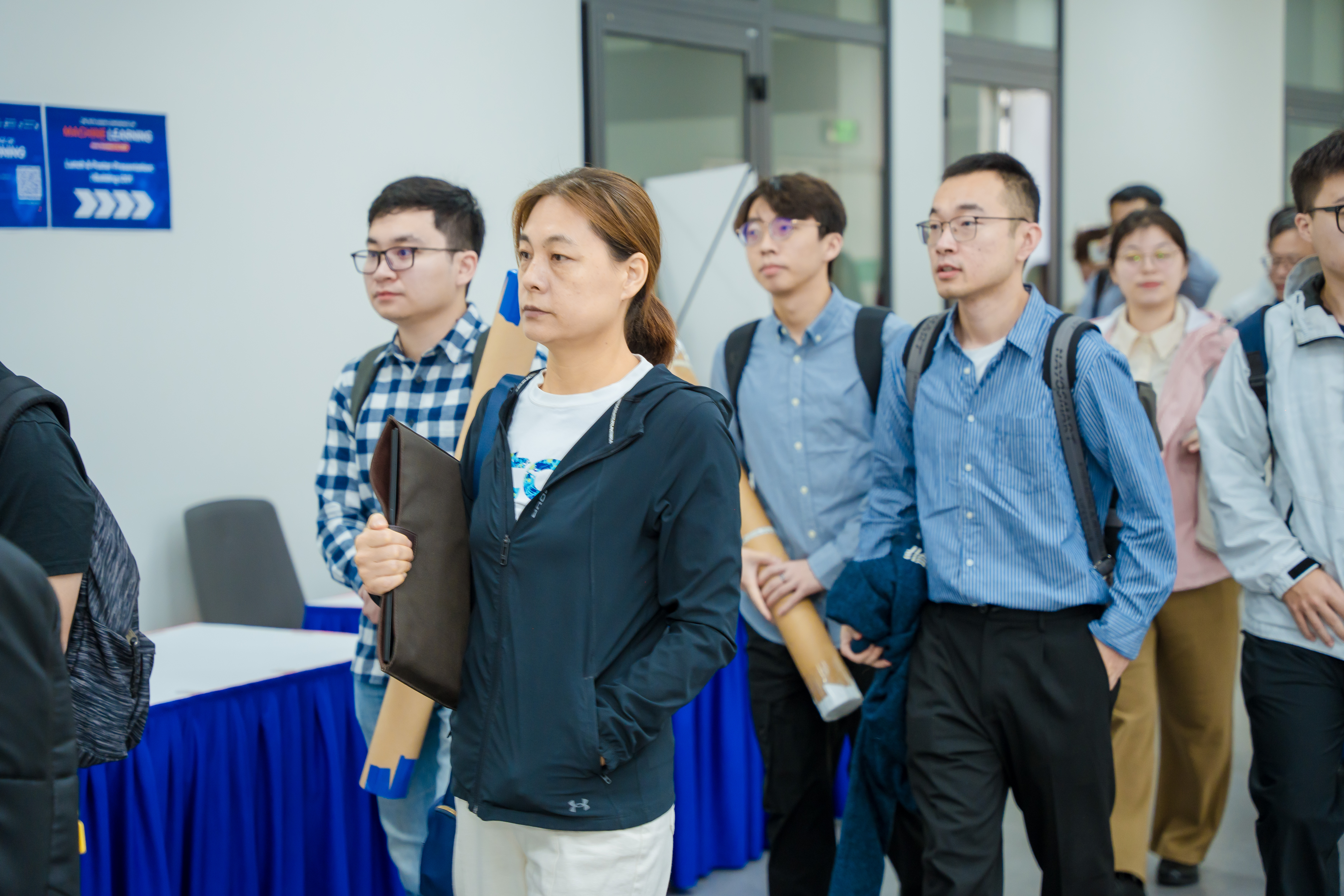
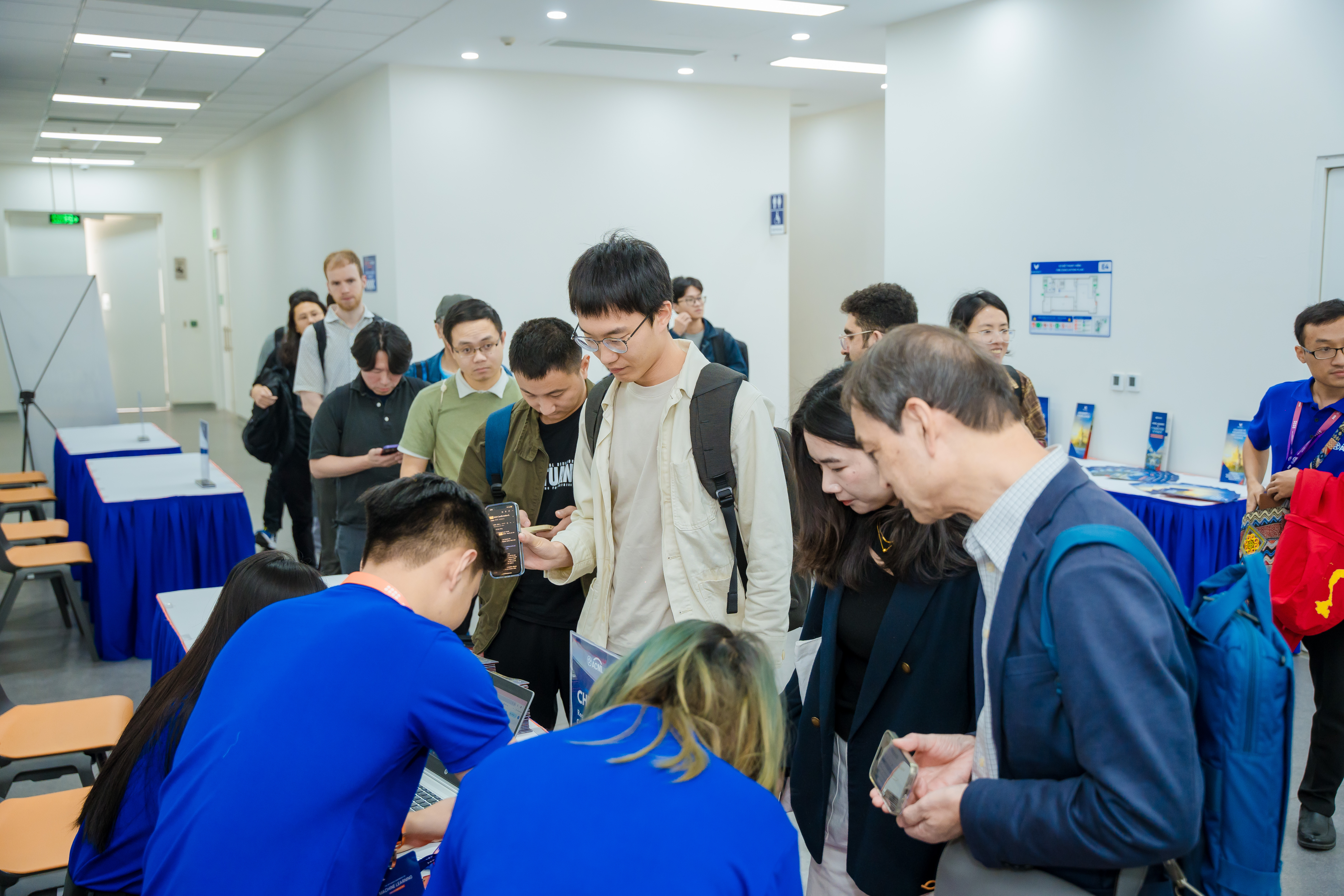
💡 Highlights of the day
📌 Plenary Session #1: "AI Superhuman Reasoning for Math and Beyond" by Dr. Thang Luong (Google DeepMind)
He began working in Neural Machine Translation 2014, leveraging pattern recognition based on deep neural networks. Over time, he transitioned to developing more complex systems involving various forms of reasoning, starting with chat systems in 2018, large language models like ChatGPT in 2022, and now mathematical problem-solving systems. Their latest mathematical system approaches gold medal-level performance at the International Mathematics Olympiad, designed for high school students. This is achieved by combining what psychologists refer to as System 1 reasoning—pattern-based reasoning used in chat systems—with System 2 reasoning, which involves structured logical reasoning tailored for solving mathematical problems. The System 2 component generates verifiable proofs, while the System 1 component guides the process. He also shared that his ultimate goal is to create AI systems that surpass human capabilities. Dr. Thang concluded his talk with a prediction: by 2030, AI will achieve such advancements that it will be awarded a Fields Medal, often regarded as the "Nobel Prize of Mathematics."
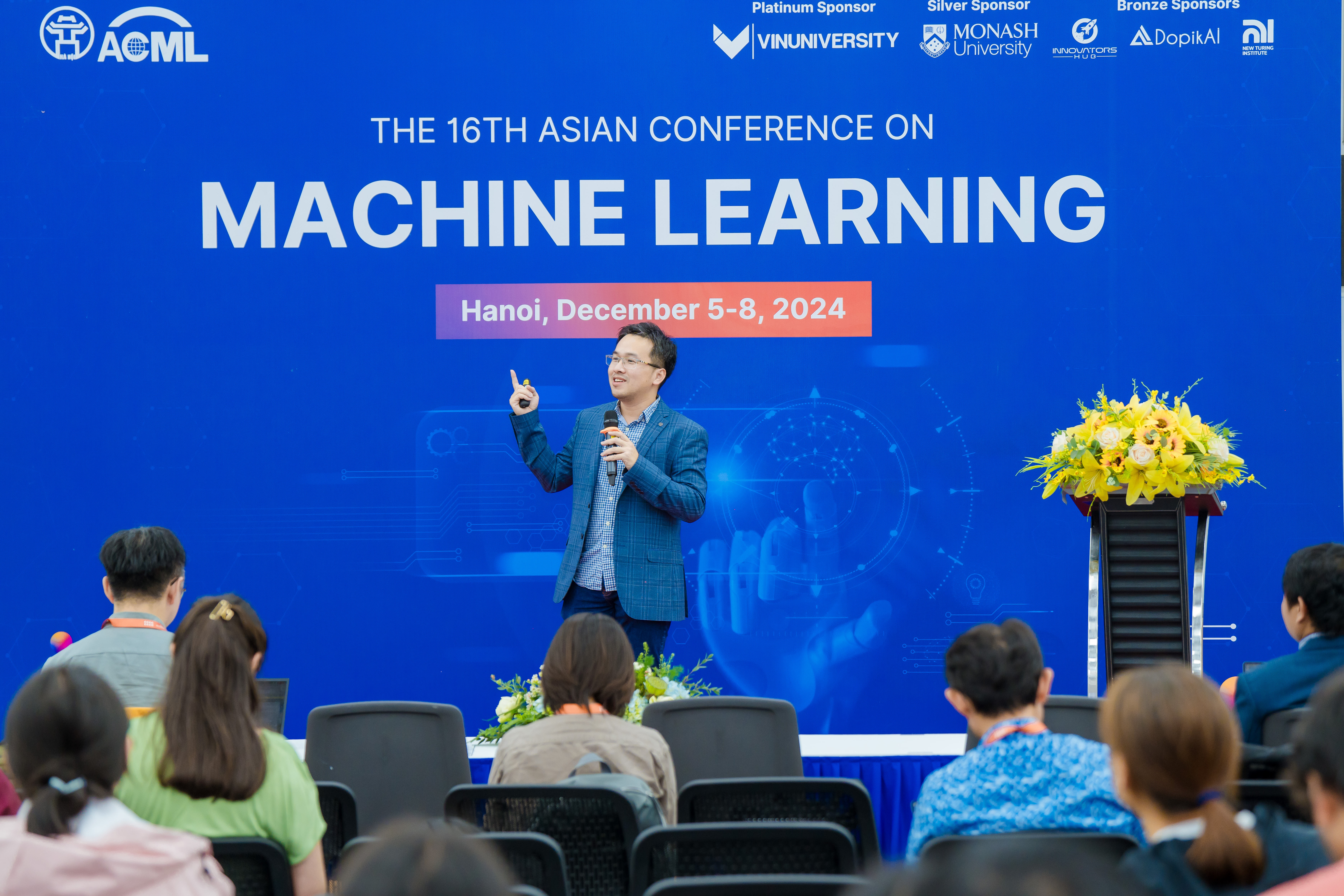
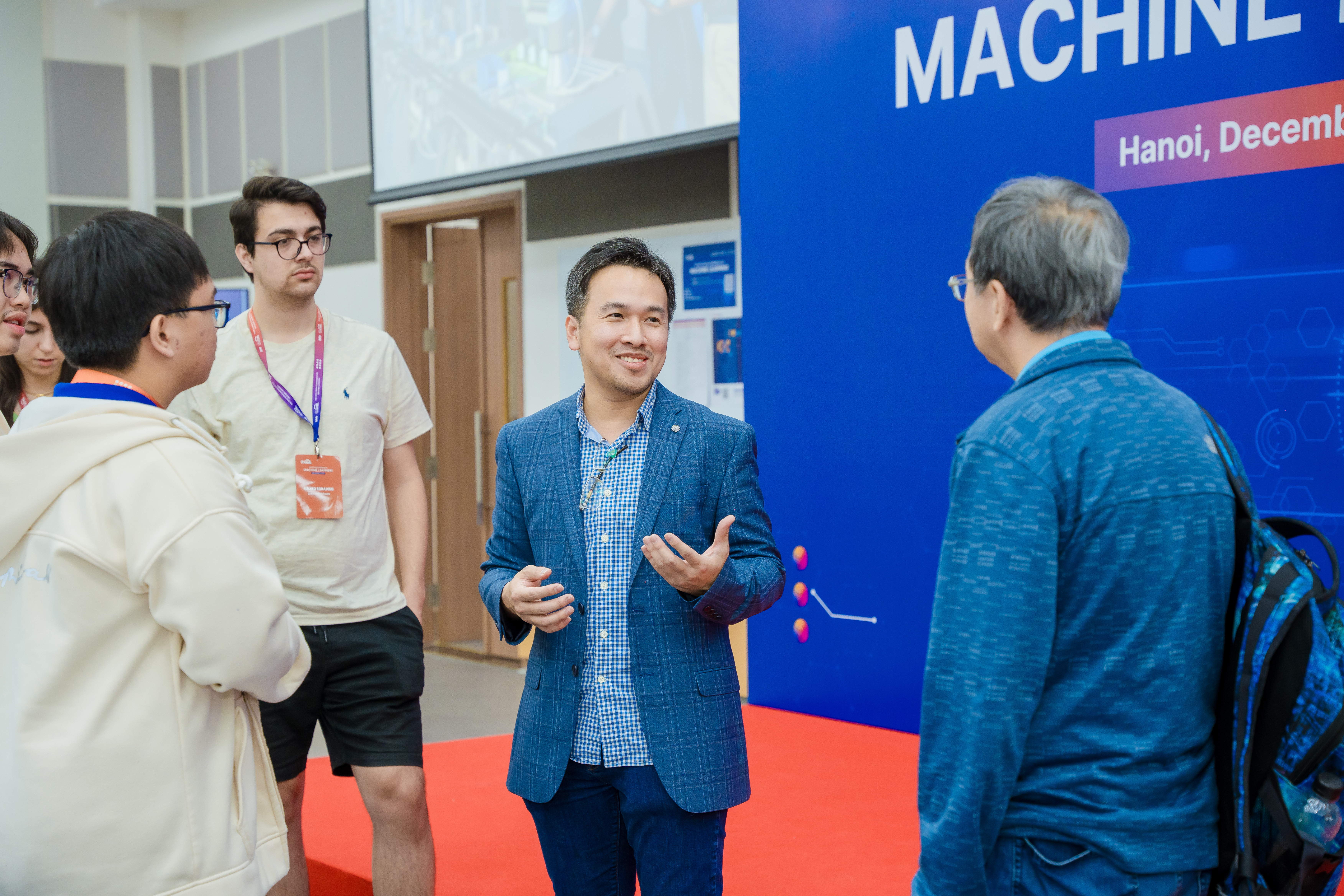
📌 Plenary Session #2: "Learning as Distribution Matching: A Perspective through Optimal Transport" by Prof. Dinh Phung (Monash University)
Prof. Dinh showcased a series of groundbreaking theoretical advancements his team has achieved in Machine Learning. To set the stage, he delved into the history of Optimal Transport Theory, tracing its origins back to Napoleonic-era France. This theory addresses problems like efficiently distributing bread from various bakeries across a city to shops in a way that meets demand, respects production limits, and minimizes transportation costs. Remarkably, this logistical challenge forms the foundation of a significant class of problems in machine learning: mapping between probability distributions. His talk explored themes such as robustness, hierarchical understanding, transferring learning across domains, and learning entirely new concepts.
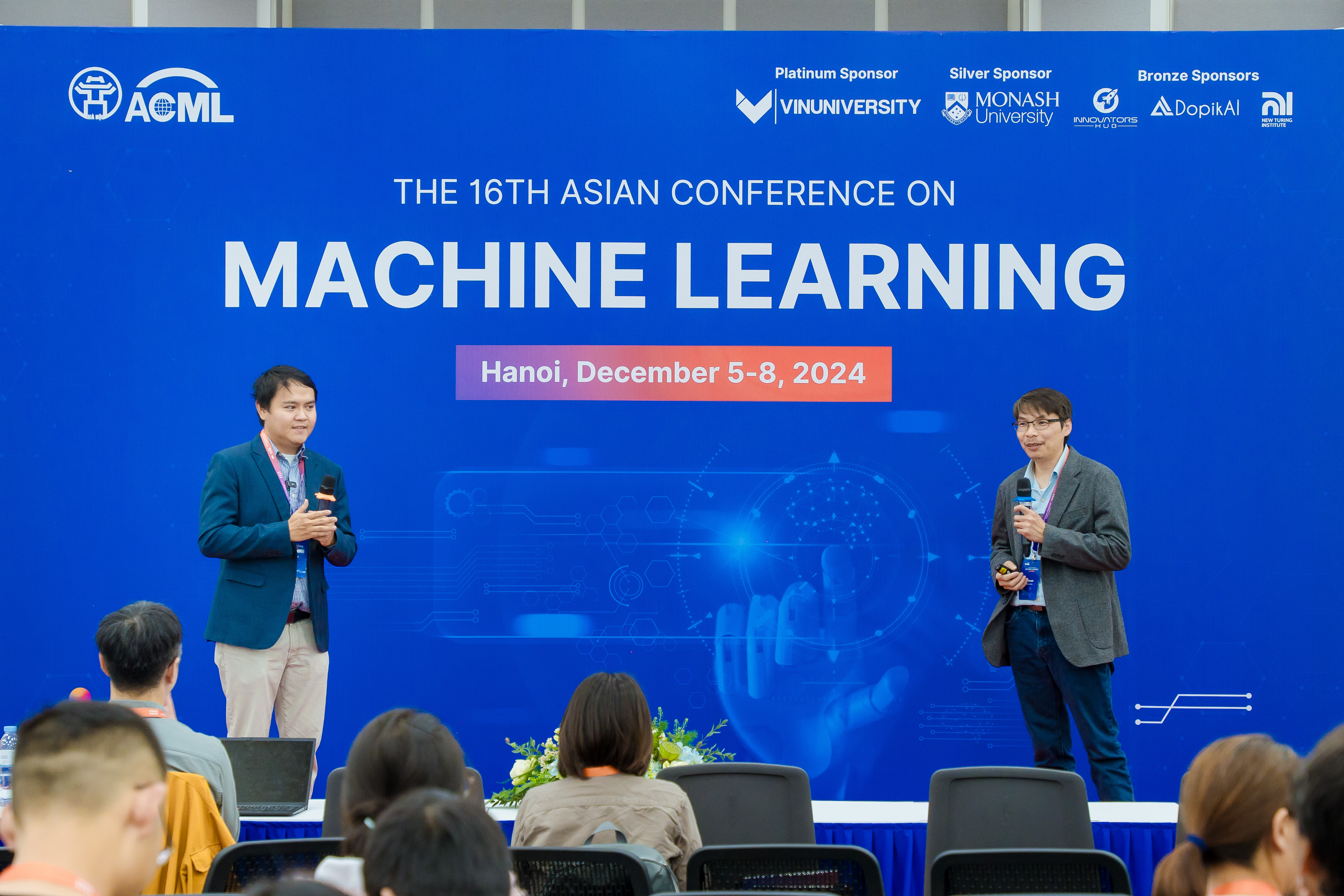
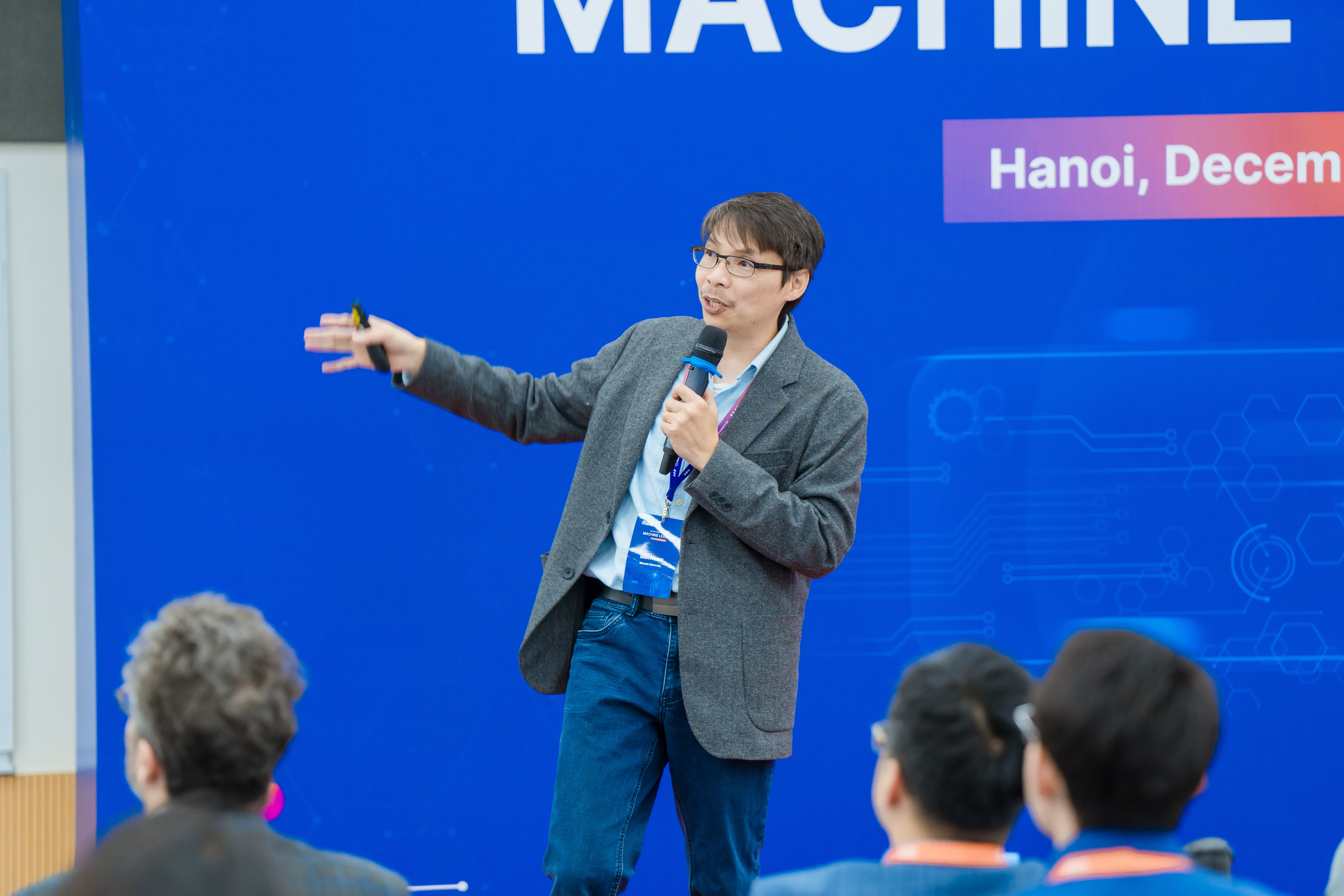
📌 In the afternoon, 06 oral presentation sessions were held simultaneously in different rooms at VinUniversity. Each session covered various topics, allowing participants to engage deeply with cutting-edge research and ideas in their respective fields. The dynamic setting fostered lively discussions and opportunities for interdisciplinary collaboration among attendees.
